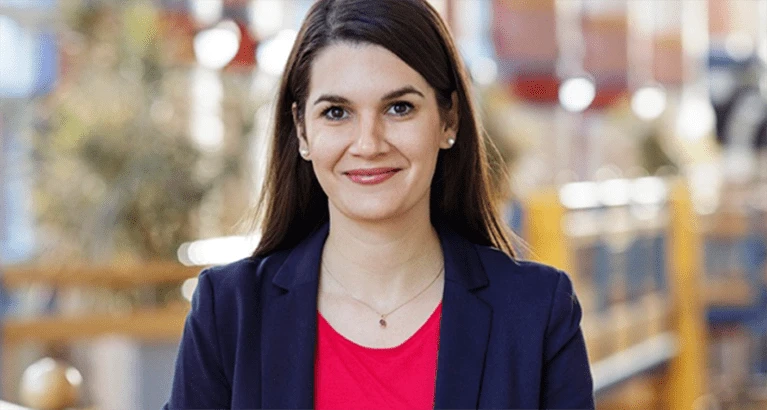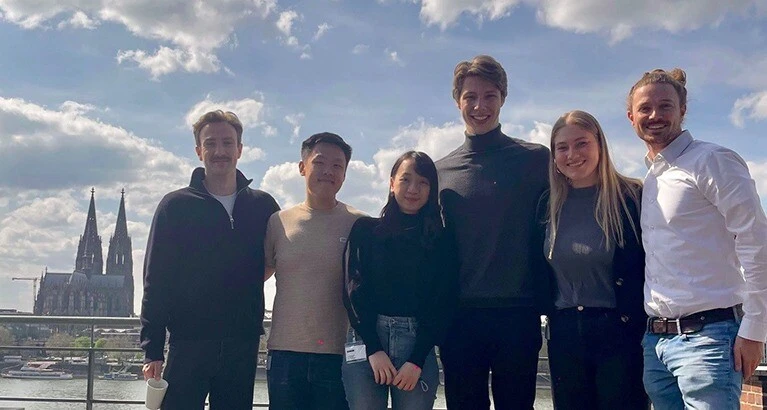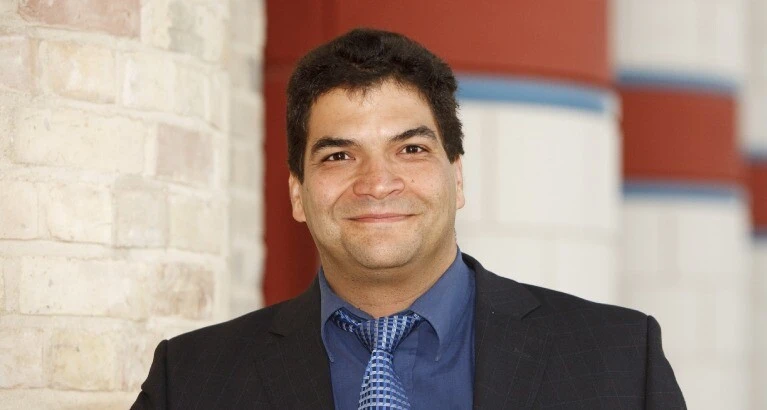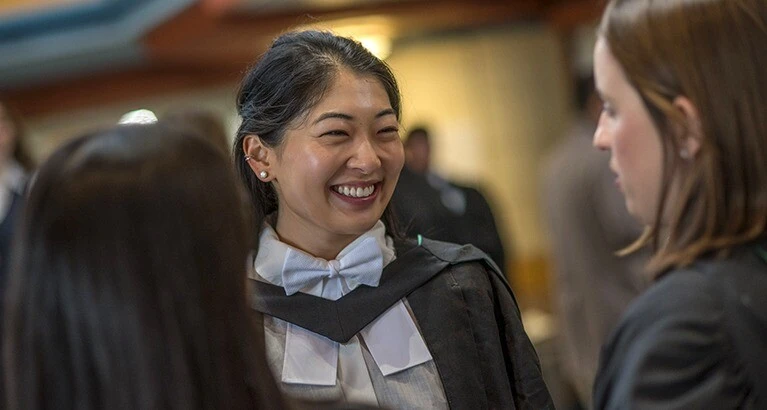From the world to the classroom
As Associate Professor of Strategy & International Business, Madeleine Rauch’s work takes her all over the world, frequently to dangerous places. But when she taught her first MBA class in Cambridge at the start of this year, she was thrilled to find that many of her students came from countries she hadn’t yet visited.
“My MBA students have such varied backgrounds, culturally, geographically and all with a wealth of experience. They offer a wide view of the world, and I am learning from them as well as teaching them.” Born at Lake Constance, Madeleine studied for her PhD in Berlin and then went to Copenhagen Business School as Assistant Professor.
“I am very European in my thinking and having spent 3 years as a full-time Fellow at Stanford University, I was keen to return to work in Europe but in an international faculty. I was delighted to find so many students from South America and South-east Asia in my class!”
Strategy in extreme contexts
Madeleine chose to come to Cambridge in part because the University is a leader in her chosen field of research. Her main concentration is on strategising in extreme contexts. “Work does something to one’s sense of self. I have always been interested in the social aspects of work, going back to my scouting days in childhood. Hiking with just a backpack and limited supplies, you learnt how to be part of a functioning team.”
As a young Scout, she became interested in topics of solidarity and atrocities provoked by the 1996 Rwanda genocide, instilled questions in her of how strategising takes place for such large-scale problems – from genocide to wildfires in California.
“Even then I was fascinated by the organisational processes of how international organisations organise in dire situations.” Her PhD was on heuristics and strategy-making.
“I had become interested in the gut feeling element of strategising. I was looking for work that had more impact beyond the often-focused increase in performance or the bottom line in strategy-making.”
She found the answer by chance, at a meeting in Geneva with representatives of the United Nations and Doctors Without Borders. “One thing led to another, and I found myself researching how people cope with difficult experiences in their work lives.” Trained as an ethnographer, Madeleine works heavily with diaries to understand the often-dire realities in the everyday lives of individuals in extreme work situations. Recent research projects have included nurses during the Covid-19 pandemic and drone operators in the US Air Force.
Field research from the Yemen to Afghanistan
She makes it a requirement that she also visits the field, recent research has taken her to South Sudan, the Yemen and Afghanistan. Her next project will take her studying scientists working in Antarctica.
“I personally interview all my diarists. Interviews and diaries are extremely powerful. However, witnessing firsthand how such work is taking place in the field is paramount. Coding data from my office, where I have food and clean water, is very different to the situations in which their work takes place. In my experience, unless you are actually there, you cannot truly reflect the situation.”
For her most recent paper, “Reframing Silence as Purposeful: Emotions in Extreme Contexts”, Rauch and her Cambridge Judge colleague Shahzad (Shaz) Ansari, Professor of Strategy & Innovation, studied unsolicited personal diaries from personnel of the medical humanitarian organisation Médecins Sans Frontières.
“These individuals work amongst scenes of extreme human tragedy and learn to mask their own emotional distress. But naturally they are affected. Time to reflect can be a luxury for them, but they still need to cope with these dire situations. Increasingly organisations are recognising that group therapy does not work for everyone, and that they need to examine their organisational practices when it comes to extreme situations.”
Emotions can run high in the boardroom too
Before joining Cambridge Judge Business School, Madeleine had extensive teaching experience in executive education. “Emotions can run very high in the boardroom and bankers may also think their own work situation is extreme! I enjoy bringing the theory alive through teaching and relish the moment when an individual sees links between theory and practice.”
Madeleine is enjoying her new life in Cambridge. “The perception of time is different here from Silicon Valley, where everyone is in a rush. It is a small city, you run into people all the time, and people regularly take the time to talk. The College system is one of the great beauties of the university. It is mind-blowing that each day at lunch I can find myself sitting next to someone who is top of their field in an area of research that is completely new to me.”
Bringing a natural curiosity to the classroom
Her own work thrives on her natural curiosity, which she brings to the classroom. “The MBA cohort I am teaching are so enthusiastic and interesting. One of them recently asked to be excused from a lecture to attend a conference in Chicago on climate change. I was fascinated as their background was working in the oil and gas industry.”
Madeleine’s research reminds her that there is no ‘one size fits all’ solution to working in stressful situations. “I studied the UN Peacekeeping force in Africa. Such blue helmets join the missions voluntarily with the aim to bring peace to countries and areas that at times have been war-ridden for years and decades.
To my surprise, many described feelings of boredom and dissatisfaction once in the field due to routine tasks such as extensive patrolling activities. Some perceived boredom as something positive, for example watching the villagers dance, as it meant the ceasefire is held for another day, while for others there was a desire to do more and accept boredom on moral grounds.”
Madeleine’s students may well feel her research is timely as they think about the careers ahead of them post-MBA. “Much of my work covers typical themes important to management practice, which is useful for traditional and less traditional contexts. Given the world we live in today, I believe organisations large and small should be giving much more thought right now to how people address stress at work, including how workers deal with challenging issues in and around work, such as traumatic situations.”
Related articles
Five Cambridge MBA students work on their Global Consulting Project with the top German broadcaster RTL Deutschland to apply generative artificial intelligence to advertising and other key projects.
Programme news
MBA lecturer Michael Barrett drives digital transformation
Professor Michael Barrett, Vice-Dean at Cambridge Judge Business School, drives research and teaching on digital transformation, AI and fintech. He helps MBA students tackle real world challenges and explore how emerging technologies reshape business ecosystems. This article is part of our MBA Teaching Spotlight series.…
Programme news
Career opportunities for our latest MBA graduates
Despite economic uncertainty, our MBA graduates have secured strong career opportunities, reflecting their resilience and adaptability. As we publish the Cambridge MBA Employment Report 2025, Cambridge Judge Business School remains committed to preparing students for success in a dynamic global market.





